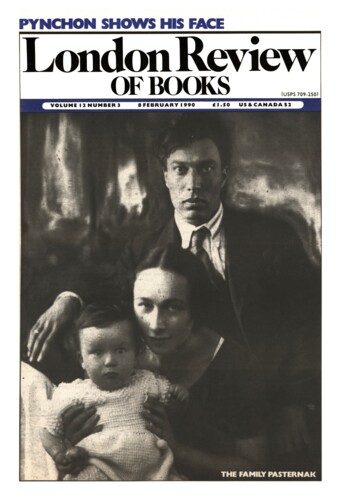Bound for the bad
Mary Beard, 14 September 1989
Alice Thomas Ellis has a delicate touch with her fictional delinquents. In The Birds of the Air, her second novel, Sam, the nearly criminal son of a respectable academic couple, reveals all those conflicting qualities that make the young offender so hard to deal with and to understand. We feel at the same time revulsion and a sneaking admiration. True, Sam is in many ways an offputting specimen: he dies his hair virulently green; he talks in an almost incomprehensible adolescent jargon; and he gets his kicks from stealing bicycles and from other kinds of petty juvenile dishonesty. But with ATE we come to sympathise with Sam’s view of the world and his own sense of purpose. We begin to share his disdain for the hypocritical authority of his parents and share his excitement in trivial misdemeanours – like simply absconding from family celebrations or secretly taping (and then replaying at enormous volume) the pretentious chit-chat of a donnish party. It is even with a sense of wonder, rather than complete horror, that we read of his frankly appalling fantasies of mass murder: the dream of sitting on the rooftops, neatly unhooking the sharp-edged slates and aiming them at the necks of anonymous passers-by ‘until the air was full of their silly heads, flying around as thick as autumn leaves’. For a moment we can almost believe that these presumably innocent adults deserved their decapitation.’




